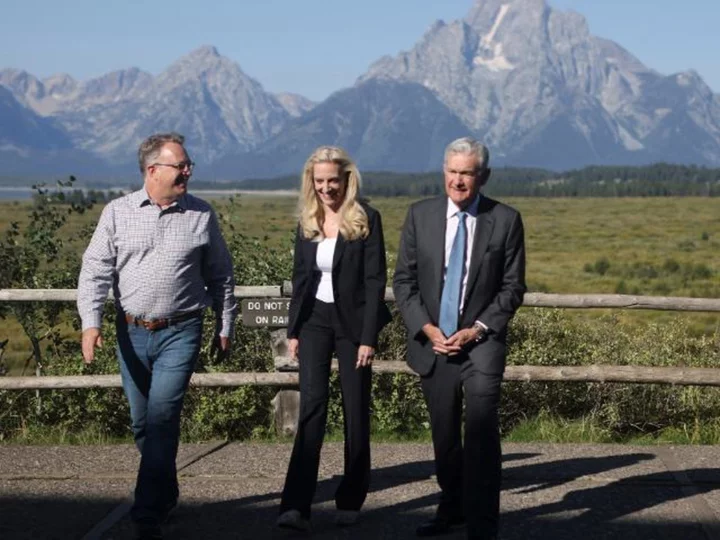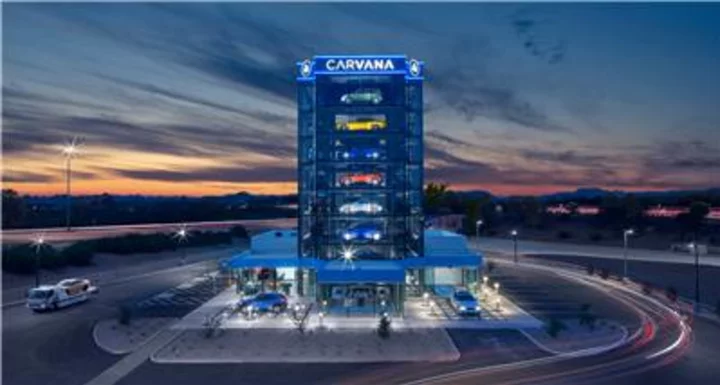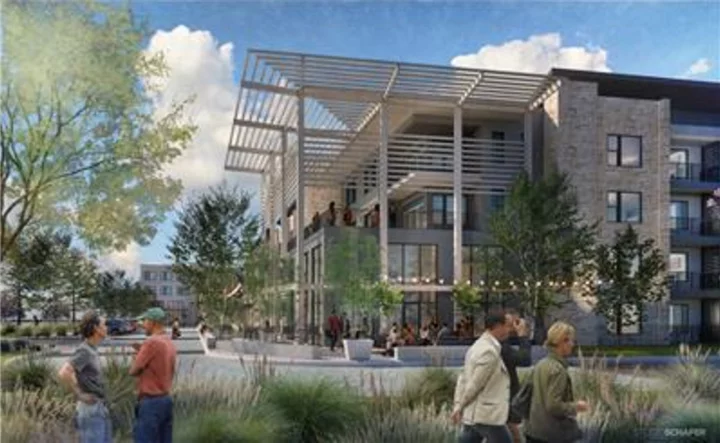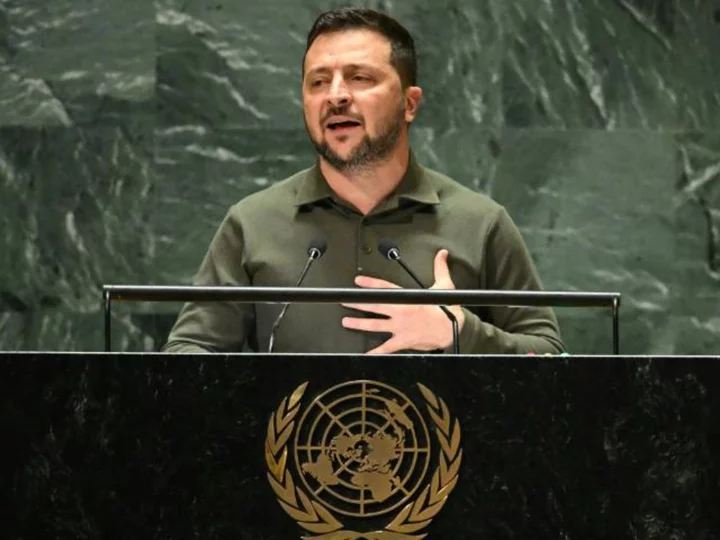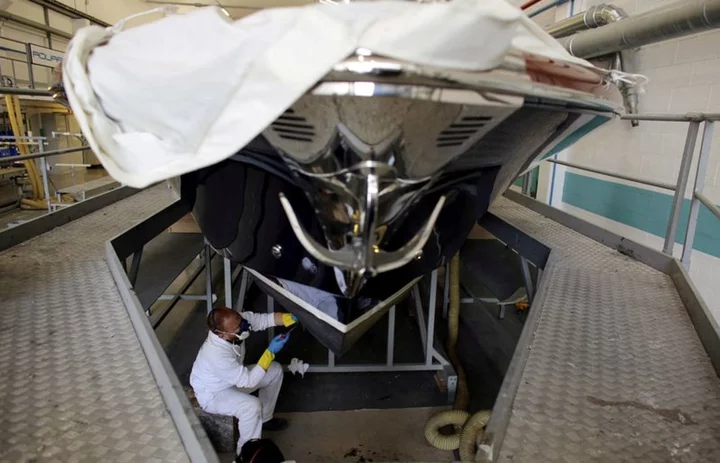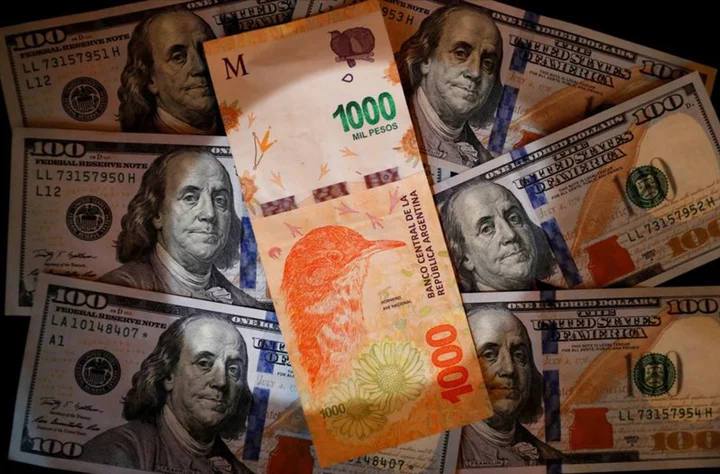Most of the year, people visit Jackson Hole, Wyoming, to ski, fly fish or simply enjoy the region's vast natural beauty. But for three days in late August, the city situated in the heart of Grand Teton National Park transforms into Woodstock for economists.
There, top economists from across the globe rub shoulders with one another and mingle with reporters and investors hungry for clues about their economic outlooks. But instead of the Grateful Dead, the headliner of the festival taking place from August 24-26 is Federal Reserve Chair Jerome Powell (who admits he is a Deadhead).
He'll take the stage at the 46th such festival hosted by the Kansas City Fed, formally known as the Jackson Hole Economic Symposium, at 10:05 a.m. ET on Friday. But despite all the hype, his "set" could last under 10 minutes, like last year. And yet, those brief remarks in 2022 were powerful enough to roil markets.
Setting the stage: the economic backdrop
Inflation has slowed significantly since last year's Jackson Hole conference, alongside glimmers of a cooling labor market. But it's uncertain how long that will last without more rate hikes. It's possible the Fed's actions so far are insufficient to keep inflation slowing.
On the other hand, because there are lags between the time the Fed acts and when its actions are felt across the economy, there's a risk the Fed will end up inflicting more pain than what's needed to get inflation to the bank's 2% target if it raises interest rates too high.
During their most recent meeting in July, Fed officials again said they felt the risks of not raising interest rates high enough to combat inflation outweighed the risk of inadvertently raising rates too high; hence, they opted for a quarter-point rate hike. That increase came after central bankers voted to hold rates steady in June, the first pause since they began hiking rates in the spring of 2022.
Traders are convinced the Fed will pause again at its meeting next month, according to the CME FedWatch Tool. But there's much less of a consensus about the Fed's game plan after September.
If history is any indication, Powell's speech could usher in major policy changes, said Michael Cahill, vice president of foreign exchange research at Goldman Sachs.
A look back at past Jackson Hole conferences
Last year's Jackson Hole conference was notable not just because it was the first time in two years that economists gathered in person. Powell used his keynote address to warn that Fed officials were going to be unapologetic in their fight against inflation, even if it meant inflicting "pain" on households and businesses. Two three-quarter-point rate hikes followed at the Fed's subsequent meetings after Jackson Hole — and the central bank has continued hiking rates, albeit at a much slower pace, since then.
In recent history, there have been several other noteworthy speeches delivered from the Jackson Hole conference.
For instance, in 2010, then-Fed Chair Ben Bernanke used his time there to lay out "policy options for further easing," said Cahill. "That was widely seen as a signal of additional quantitative easing," he said. Quantitative easing, or QE, is when the Fed purchases bonds in an effort to bring interest rates down to stimulate the economy.
Months after Bernanke's Jackson Hole speech, he unveiled a whole new phase of bond-purchasing in what has now become known as QE2. Then, in his 2012 Jackson Hole address, Bernanke said that labor market stagnation was a "grave concern." He also said that the Fed's QE2 showed positive net benefits. Shortly thereafter the Fed launched QE3.
In 2016, then-Fed Chair Janet Yellen, the current Treasury secretary, used her Jackson Hole address to prepare markets for more rate hikes, saying that she believed that "the case for an increase in the federal funds rate has strengthened in recent months." Then, starting in December of 2016, the Fed hiked rates approximately every three meetings until 2018.
Beyond the headliner
Like a music festival lineup, Jackson Hole has other headliners and smaller-stage events.
In fact, "it's not always Fed speakers that are most in the limelight," Cahill told CNN.
Bernanke's speech wasn't the only headline-making speech coming out of Jackson Hole in 2012. Michael Woodford, an economics professor at Columbia University, delivered remarks critical of the Fed's reluctance to explicitly commit to keeping rates low to help the economy grow. His speech and the research findings he presented did not go unnoticed by the Fed.
The December 2012 post-meeting policy statement said that the Fed officials anticipated that "this exceptionally low range for the federal funds rate will be appropriate at least as long as the unemployment rate remains above 6.5%."
"This shift was undertaken with the intent of helping the public better understand the Fed's decision-making process in response to changes in economic conditions," New York Fed President John Williams said in a 2013 column for VoxEU. At the time of publication, Williams had been serving as the San Francisco Fed president.
Central bankers from outside the US have also used their time on the Jackson Hole stage to signal policy changes.
Former President of the European Central Bank Mario Draghi highlighted in his 2014 remarks at Jackson Hole that inflation levels markets were pricing in were far too low. These remarks were widely seen as the starting point for more QE even after the ECB cut rates into negative territory, Cahill said.
A columnist for the Financial Times went so far as to say that Draghi "certainly stole the show this year [at Jackson Hole]."
No matter what comes out of the conference this year, it's clear that what happens in Jackson Hole doesn't stay in Jackson Hole.

